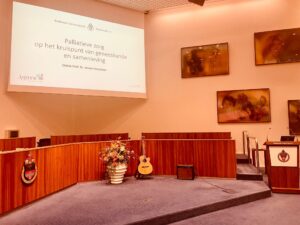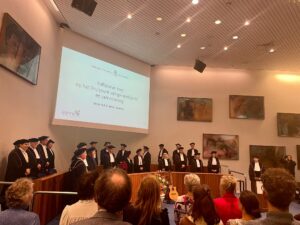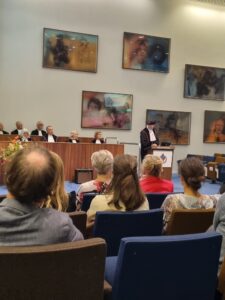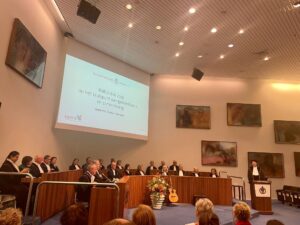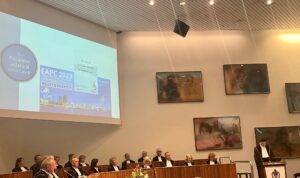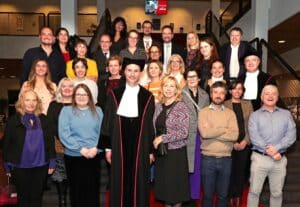The Pal-Cycles consortium was delighted to be able to attend the inaugural lecture of Professor Jeroen Hasselaar, held on 9th November 2023 at Radboud University, Nijmegen, the Netherlands.
In his enlightening lecture, Professor Jeroen Hasselaar, who leads the Pal-Cycles project, shed light on the profound meaning of palliative care. He emphasised that it goes beyond the technical aspects of medicine and encompasses the social context of care and the provision of support. Care is not just a one-way delivery; it is a profound connection between individuals. Palliative care is not solely focused on death, but also on embracing the meaningful aspects of life. It is about living fully and being an active part of a vibrant and dynamic environment that includes work, school, community, religious activities, and more.
Many of the aspects of palliative care highlighted in the lecture are reflected in the Pal-Cycles project. Rather than focusing solely on improving medical care, the Pal-Cycles project aims to improve communication and collaboration in palliative care and to improve the transition of patients with palliative care needs to the environment in which they prefer to live out the rest of their lives. In this sense, Professor Hasselaar emphasised the concept of “social empowerment” and encouraged a broader social perspective on this issue, stressing that issues of life and death go beyond the medical sphere and shape the way individuals face these challenges in their social context, as well as the way society responds.
The 2017 Quality Framework for Palliative Care emphasises the significance of considering the wishes, values, and needs of patients and their families across various dimensions: physical, psychological, social, and spiritual. This framework serves as a guide for caregivers, providing insights on how to address the patient’s social context, including family dynamics, financial considerations, available support systems, and the re-establishment of connections. Ultimately, it aims to enhance the overall wellbeing of patients in a comprehensive sense.
This lecture concluded with a powerful message, stressing the importance of further exploring and emphasising the social dimension of palliative care through research and awareness. These aspirations are encompassed within the Pal-Cycles project
